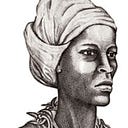Member-only story
Accepting That Indiana Jones is a Villain
Growing up, I loved the Indiana Jones movies. I hadn’t seen them in ages and recently decided to rewatch them starting with the first installment of the series: The Raiders of the Lost Ark. It didn’t go well.
I’ve always loved the silence of the opening of Raiders. There is no dialogue for a long stretch, but the stakes are conveyed. The audience knows Harrison Ford is playing the hero and that he is in a dangerous situation. It’s excellent visual storytelling. The mastery of Steven Spielberg’s filmmaking in those first several minutes rekindled my fond feelings for the film. They were quickly dashed. When Indiana Jones reaches the ancient temple, I thought to myself, “He has no right to be there.” As he breached the temple’s forbidden entrance and made his way through the labyrinth of booby traps to face the golden idol, I saw clearly the hubris and entitlement that were being presented as a spirit of adventure and courage. The idol belonged to a people — the Hovitos — and their culture. An interloper had no right to claim it to become a curiosity for the white gaze. The Hovitos were invented for the film, but the choice of how they are positioned in the story leads to the same conclusion. The Indiana Jones films romanticize colonialism and its logic of superiority and divine entitlement. Its language is that of Manifest Destiny: whatever the colonizer covets belongs to…
